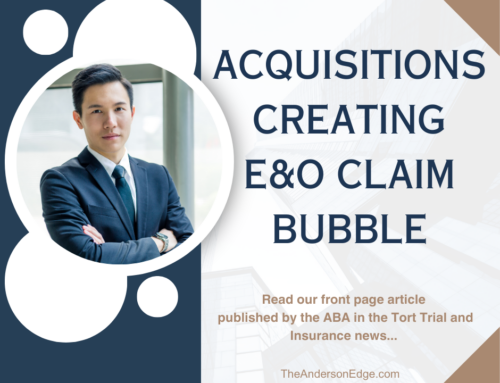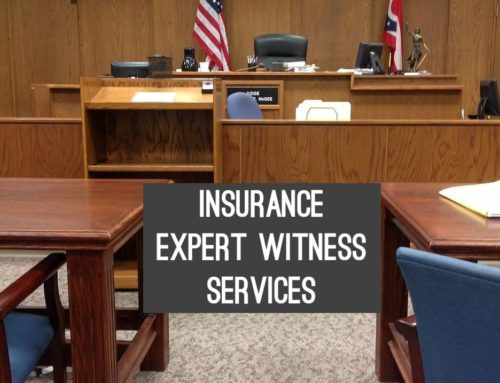Precise Expert Witness Reports Part 4
Precise Expert Witness Reports Powerful & Persuasive
Before drafting a report, the attorney and expert should discuss the scope of the report in detail. Skipping this step could lead to unnecessary work and expenses. Depending on the attorney and the case, the desired precise expert witness reports from the expert could range from narrowly tailored three to fifteen-page reports or an expansive report tallying hundreds of pages.
How to Make Your Precise Expert Witness Reports Powerful and Persuasive
At the start of the drafting process, write an outline then fill in the information with initial outline doubling as a table of contents. Items to include in every outline are the executive summary, and the questions the hiring attorney asked to have answered. If your document can include line numbers, do so as it is helpful during depositions and the trial.
The audience the expert witness writes for is intelligent. However, they are a layman in comparison to the expert’s proficiency. So, try to avoid using jargon and abbreviations. If jargon is unavoidable, thoroughly define the terms. The report should contain the established guidelines and standards applied, details of the process or method used, and include the reliability of the test performed. Also, mention any equipment, resources, or relevant authorities, treatises, or reports used.
To enhance credibility an expert witness report should state opinions clearly and confidently, but also indicate the reasons for those opinions using facts and materials to back them up. An expert witness should counter argue their opinions by ruling out alternative explanations and giving the reasons why they were ruled out. Avoid imparting extra information or additional opinions; this could hinder a case.
Provide Precise Expert Witness Reports
It is best for an expert witness uses precise language as it clears up confusion, makes a report more concise, and helps build persuasion. Expert witnesses must be particular about facts upon which they base their conclusions. Courts have barred experts from testifying because of misstatements or flawed assumptions. In Moore vs. Int’l Paint, L.L.C., the estate of a deceased shipyard worker sued a paint manufacturer. An expert was hired to testify to the plaintiff’s allegation that the “cumulative benzene exposure while using [International Paint]’s products” was the cause of death.[1] The Fifth Circuit Court of Appeals held the lower court’s decision to preclude the expert from testifying. The court stated, “a few scattered errors in a report are not necessarily grounds for exclusion . . . [h]ere however, the universe of facts assumed by the expert differs frequently and substantially from the undisputed record of evidence.”[2] Therefore, an expert witness should not assume facts not in the evidence, and always use the record. An expert should use objective statements over subjective ones. They are less persuasive and subjective characterization of an expert’s methods creates a fertile ground for cross-examination.
To lower the likelihood of strong cross-examination, refrain from using absolute phrasing like “always” or “never.” Do not use any incomplete terminology (e.g., “including, but not limited to,” and “relevant portions of”). Avoid hedging—using phrases like “somewhat,” “sort of,” “apparently,” and “I believe.” Superlatives (e.g., very, extremely, etc.), argumentative language, or emphasis (e.g., exclamation points, bold, all capital letters, etc.) have no place in a professional report. Making comments on the credibility of the other witnesses is disfavored and only deters from the credibility of the report writer. Forego using an overly informal or over-friendly tone as it appears unprofessional. Find the balance between formal and informal, overly friendly and stern. Experts should never write about opinions outside their expertise or issues the attorney did not ask them to address. Doing so, can open the door for evidence that would otherwise be barred.
Drafting and Editing Precise Expert Witness Reports
During drafting and editing of a report, the type of grammatical voice used is important. Avoid passive voice, “the mismanagement of the situation was done by the insurance company.” Instead focus on using active voice, “the insurance company mismanaged the situation.” Make sure the doer of the action, or the subject of the sentence, is close to the verb. Moreover, look for any “to be” verbs—is, was, were, am, are, be, being, been. If any of them are in the sentence, then check for the preposition “by.” The two words in the same sentence always make it passive voice. There are acceptable instances of passive voice, like when the actor is unknown or when trying to minimize the action.
If a supplemental report is needed by one side, the opposing side should prepare to write a rebuttal report. Rebuttal testimony is allowed as long as it does not introduce new or complex methodologies that fill the gap in the expert’s analysis. An expert may also write a rebuttal report if the opposing expert supplies new information or methodologies that need to be disproved.
Rebuttal reports are rarely needed. Most often it is required when new information comes to light. Use measured language that is diplomatic when writing these reports. Politely explain why the opinions, methods, and sources used by the opposing expert are outdated or not relevant.
The Anderson Edge is available to assist with your cases and always provides Precise Expert Witness Reports that are both powerful and persuasive.
Need help with federal cases involving insurance?
Call 1 949 645-6842 for a complimentary 30 minute phone consult or email Robert Anderson today.
Read Parts 1,2,3
Rule 26 Amendments, History, Application Part I
References:
[1] 547 F. App’x 513 (2013).
[2] 547 F. App’x 513, 517 (2013).




